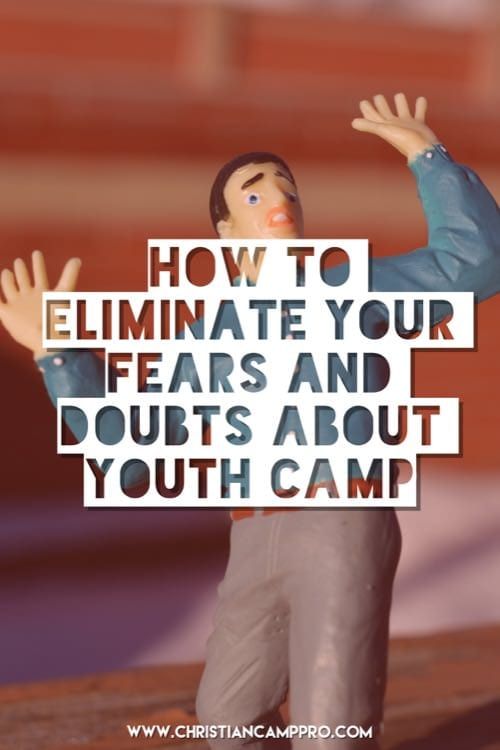6 Surprising Reasons Our Kids Don’t Want to Attend Youth Camp

Many of us remember attending youth camp when we were kids, having lots of fun and making great memories. So it may come as a shock to hear that more and more, it seems that teens simply don’t want to go. We might be tempted to wonder, “Why would they want to miss out on such an awesome experience?”
But the reasons that seem ridiculous to us may actually be quite valid and worth discussing. Their mindsets may bring up some great points that will help us to plan youth camps that have teens flocking in instead of running the other direction.
1. They think it’s boring.
It’s hard to grab the attention of a teenager – and even harder to keep it. Some teens may be convinced that if they go to youth camp, they will be bored out of their minds. This could be due to a previous experience, or simply due to cynical talk from their friends. Your job as a camp counselor is to challenge their preconceived notions and show them that youth camp can be exciting and fun. But how?
It goes without saying that in order to engage the youth, you have to know what they like. That’s why it is good to have younger adults on your staff who can appeal to the interests of this generation in planning your camp. Plan activities and games that teens will want to participate in. You can even tie in elements of pop culture into your theme. The possibilities are infinite.
Try a popular great escape game!
2. They are doubting their faith.
Adolescence is a critical time for finding one’s faith. Teens who had never really thought about religion before may start searching for answers. Teens who grew up in the church may start to ask hard questions and doubt what they believe. While youth camp is a great experience to strengthen faith, it can be scary for someone who is on the edge.
And so, it’s important that these teens see youth camp as something that is accessible to everyone, no matter where they are in their faith. They should feel comfortable, not surrounded by people who are judgmental and “holier than them”. If you strive to create an all-inclusive, sincere atmosphere, God will do the rest.
3. They would rather do something else.
In this fast-paced world, there are so many things to do and see, especially for young people. New movies, video games, and fashion trends. High school sporting events, dances, and parties. All these things compete for teenagers’ time and attention; so how do you convince them that youth camp is worth giving up these things for?
One important thing to keep in mind is your advertising strategy. If this youth camp is advertised as just a small week-long religious event, it is not likely to win out over the other alternatives. Make sure you communicate the excitement that you’re hoping to create. Advertise the activities and games you’ll be organizing, as well as live music or any other special incentives. In addition, try to plan the youth camp during a week over a school break when no other big events are happening (e.g. the county fair or the high school dance).
4. They don’t have any friends going.
Part of what makes youth camp so memorable is the relationships that are formed among friends. Many teens may not want to go, simply because they don’t have any friends who are going – and this is perfectly understandable. Don’t we, as adults, do the same thing? We want to stick around people we know, never venturing out of comfort zones. If only we knew how to make friends at youth camp earlier.
There are many steps you can take to address this. First, you could start by making a Facebook group for youth who are interested in the event and posting some short icebreakers. You can also invite them to smaller youth events (or even youth group) prior to camp to get them acquainted with each other via a speed friending game. If each teen recognizes even at least one friendly face, they will feel much more at ease going to youth camp.
5. They had a bad experience at camp in the past.
Not all youth camps are created equal. Sadly, many youth camps have their own issues that may have seriously bothered teens. Or maybe they just ran into an unavoidable situation and are reluctant to let it happen again. Regardless of the experience, you can encourage skeptical teens that this youth camp will be different.
For instance, you could make a camp promotional video that includes testimonies from teens who have attended youth camp in the past and loved it. Of course, not everyone in attendance will have a wonderful, life-changing experience; but everyone has the chance to. And we should be encouraging them to take that chance.
6. It’s the same as going to church.
The point of youth camp is to build up the faith of young people in a new and refreshing atmosphere. Unfortunately, many teens are skeptical that it will be the exact same experience as going to church. Teens don’t want to be preached at all week; they want to be engaged. They want something other than what they get every Sunday morning.
Therefore, emphasize the parts of your camp that are most unique and interactive. Yes, good speakers are important, but your teens aren’t going just to hear someone talk. Show them that by going to youth camp, they’re going to get something that they can’t get anywhere else.
Times are changing, and what worked for teens ten years ago may not be effective today. But when we try to see things from their point of view, we can learn to plan youth camps that are more exciting, more creative, and more true to their core purpose. When we are passionate about what we’re planning, that enthusiasm will be infectious and draw in even more teenagers.
Free Retreat Planning Checklist!
Over 20,000 Downloads! Join now to receive my FREE Retreat Planning Checklist that will save you time when planning your next event! You will also receive the latest games, themes, and ideas to help take your next camp or retreat to the next level. Don’t miss out!




